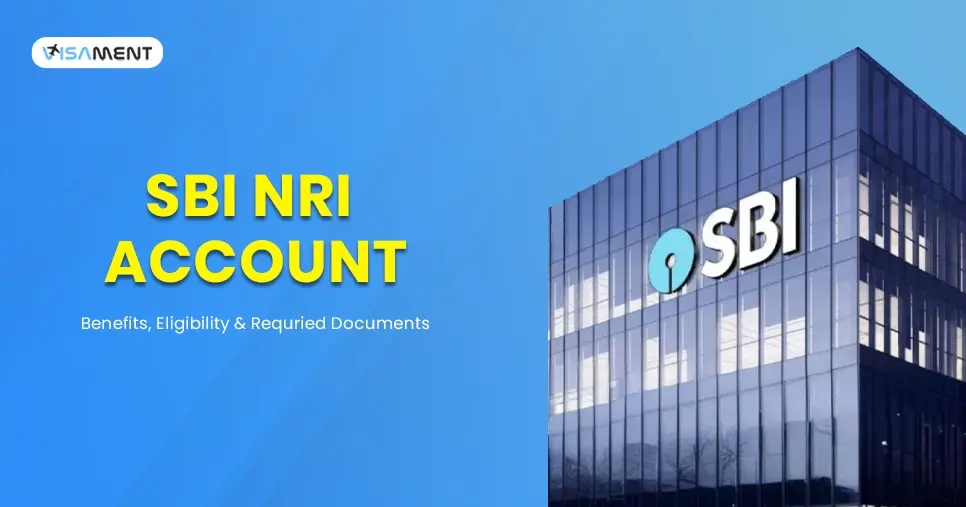We all can understand that shifting back to your home country can bring back a lot of emotions. You might be very excited to return to India, but you will constantly think about the complications you might face.
If you are an NRI returning to India permanently, then this blog can help you a lot and bring back your peace. In this guide, we will discuss all the financial needs that you might have while planning to move back to India.
Banking Needs for Returning NRIs
If you are an NRI, then you must have a lot of indian bank accounts, like NRO account, NRE account, FCNR (B) account, and many other international bank accounts. So, when you return to India, it is important to take care of all these accounts. We will discuss each one of them here:
1. Visit All the Indian Bank Accounts You Have, Again
According to the guidelines of the Reserve Bank of India (RBI), if you relocate to India, you cannot hold your NRE/NRO accounts anymore. Let's discuss the other options available:
- NRO Account: In this case, you have to either convert your NRO Account to a common savings account for the resident or close the account permanently.
- NRE Account: You have to either convert your NRE Account to a savings account or transfer all the funds you have in that account to the Resident Foreign Currency (RFC) account.
- FCNR (B) Account: If you have any FDs in your FCNR Account, then you can hold them until they mature. After that, you will have to transfer all the funds to a savings account ( in rupees) or RFC account (in foreign currency).
2. Evaluate How Much You Use the International Bank Accounts
As per the RBI, you are allowed to hold your international accounts in the bank that you have opened at the time you were an NRI. You have to follow the rules and regulations of the country in which you have opened the bank account. If they allow you to hold the bank account, then there is no issue with that.
Manage the Existing Investments
When an NRI return to India, they should review their assets and investments in India and overseas. The implications are discussed below in this section:
1. Investment in Indian Assets
- Demat Account: First of all, you have to inform your bank/broker that you are planning to return to India as a resident Indian. Then transfer all your NRI demat account existing securities to a newly opened resident demat account. After this process, you have to close your NRI demat account and the NRE Portfolio Investment Scheme (PINS) account. You will also have to update your FATCA declaration for the US or Common Reporting Standard (CRS) for the UK, Canada, and all other countries that have the CRS system. Doing a fresh Know Your Customer (KYC) is also an important part of the process.
- Mutual Funds: For mutual funds, you have to inform the entity about your residency status through which you have invested in the mutual funds. They can be your bank/broker/Asset Management Company (AMC). If you have any NRI accounts, you have to convert them to resident savings accounts. Also, don't forget to update your KYC and CRS/FATCA status.
- Fixed Deposits (FD): If you have an NRI FD account, such as NRE/NRO FD accounts, then you can convert them to a resident FD account. This way, you can still earn interest on the funds, and it will also be taxable at the applicable tax rates.
2. Investment in Overseas Assets
According to the Foreign Exchange Management Act (FEMA) regulations, you are allowed to continue holding your international assets that you had purchased at the time of being an NRI. After becoming a resident Indian, just check with the policies of the country you used to live in at the time of assets, to see if they are allowing you to hold them.
Insurance Policies
NRIs who have now become resident Indians can continue their insurance policies, like health insurance, motor insurance, etc., purchased in India. They have to continue the said policy they have purchased while they were designated as NRIs. If you have paid all your premiums, then the life insurance that you have purchased will be valid when you Move to India.
You must inform your insurer that you have changed your residency status and also update the bank account about the same. If you want to experience a seamless process, then submit all the requested documents carefully. If you have purchased any foreign insurance policies, then they may not be valid after your permanent relocation to India.
After you have become a resident Indian again, there are so many investment options available for you that may not have been there when you were an NRI. These may include opening a Public Provident Fund (PPF) account, investing in mutual funds, intraday trading in stocks, investing in Tier II National Pension Scheme (NPS), Sovereign Gold Bonds (SGBs), plantation, RBI floating rate savings bond, agricultural land, trading in currency derivatives and commodities, etc.
Tax Implications While Returning to India
When you return to India permanently, your residential status will change. There are some conditions to qualify as a resident in any financial year (April-March). If you satisfy any one of these conditions, then you will be the "resident" of India, and if you do not satisfy any one of them, then you will be a "Non-Resident" Indian.
The conditions are:
1. You have stayed in India for 182 days or more in a financial year.
2. If you have stayed for 60 or more days in the FY and 365 days in 4 years immediately preceding the FY.
- If you are an indian citizen who left India in the FY for employment or as a crew member of an Indian ship, then the above 60 days will be substituted by 182 days in the FY.
- If you are an indian citizen or a PIO with a total income of less than 15 lakhs, other than the income from foreign sources, and you have come on a visit in the FY, then the above 60 days will be substituted by 182 days.
- If you are an indian citizen or a PIO with a total income of more than 15 lakhs, other than the foreign income sources, and come to India for visits, then the above 60 days will be substituted by 120 days.
NOTE: If an Indian citizen is not eligible for taxation due to the reason of domicile, residence, or other similar criteria, provided that his income from the indian sources is more than 15 lakhs, then he will be considered as the Deemed Resident of India.
Now, based on the above conditions, after you qualify as the "resident" of India on your return, you may proceed to the further conditions of the residency. The following conditions are used to determine whether you are a Resident and Ordinarily Resident or Resident But Not Ordinarily Resident.
If you satisfy any one of the conditions, then you will be RNOR, and if you do not satisfy any of the conditions, then you will be considered as ROR:
1. First Condition:
- You are a non-resident in at least 9 out of 10 immediately preceding FYs
- Your total stay in India for the immediately preceding 7 years is less than 730 days (up to 729 days).
- If you qualify to be a "deemed resident."
2. If you are an Indian citizen or a PIO and coming on "visits" to India during the FY, and:
- Has indian sources income, more than 15 lakhs during the FY
- Stays in India for a period of 120 days or more but less than 182 days
Generally, over a duration of 2 to 3 Financial years, you will be transitioning from being an RNOR to an ROR. To understand this thoroughly, let's take an example. Vicky, an Indian Citizen, left India and went to the US for the first time due to employment purposes in January 2012. Then, he returned to India permanently on August 1, 2022. Now, let's discuss the change in his residency status over the next FYs.
1. FY 2022-23 and FY 2023-24: He will be considered as the resident of India as in the FY he has exceeded 182 days in India. Although under the category of residency, he will qualify as the RNOR, because:
- He was not the resident for 9 out of 10 FYs immediately preceding FYs
- His cumulative stay during the immediately preceding 7 years is less than 730 days.
2. FY 2024-25: He is considered a resident of India. However, he is still the Resident Not Ordinarily Resident because his total stay in the preceding 7 years has not exceeded 729 days yet, although he was a resident for 9 out of 10 immediately preceding FYs.
3. In FY 2025-26: In this FY, he will be considered as the ROR, because:
- He has spent more than 182 days in India in the current financial year.
- His total stay in India in the preceding 7 years is more than 730 days
- He has not been a non-resident in at least 9 out of 10 years before the current financial year.
The taxation on your income will depend on whether you are a ROR or RNOR. To determine your taxability, check out the table given below:
| Particulars | Non-Resident (NR) | RNOR | ROR |
|---|---|---|---|
| Income arises or accrues in India or is deemed to arise in India | Taxable | Taxable | Taxable |
| Income received or deemed to be received in India | Taxable | Taxable | Taxable |
| Income accrues or arises outside of India | Non-taxable | Non-taxable | Taxable |
The main difference between the taxability of a non-resident and an RNOR is:
- The income earned outside India will be taxed to RNOR only if it is derived from a profession or business that is operated from India.
- The NRIs are not liable to pay taxes on such income.
There is one other scenario in which Vicky continues to earn income from a foreign source from the investments he had there. In FY 2023 and FY 2024, as he is qualified to be an RNOR, he is not liable to pay taxes on his foreign income in India. Understand this with some of the examples where he is not liable to pay tax on his foreign income:
- The income came from a foreign bank from a rental property situated abroad.
- Interests and Dividends received from foreign securities and shares in a foreign bank.
- If you withdraw any amount from the offshore retirement accounts.
- Interest earned on the RFC and FCNR (B) accounts.
- Profits come from capital assets situated abroad.
Starting from FY2026, after Vicky is qualified as the ROR, the income from foreign sources will be taxable in India. If his foreign income is taxed under the Double Taxation Avoidance Agreement (DTAA), then he is allowed to claim benefits under the DTAA between India and the country where the income is sourced.
One Stop for All Banking Services: Visament
If you are planning to relocate to India as a permanent resident this time, then this blog has all the information you should know regarding your financial needs. As an NRI, you need to take care of all your NRI Bank Accounts and convert them into resident ones. If you have read till this point, then all your questions might be answered.
Apart from the information, if you are also looking for a trusted platform for NRI bank services, then Visament is the one-stop solution for you. We have professionals who are experts in providing banking services to the clients. You can also check out our other services on the website, such as visa and passport services.
Frequently Asked Questions
You can keep your NRE account until 90 days after your return to India, but during this period, you have to either convert it to a resident savings account or close it.
Yes, you can continue to hold your overseas assets and foreign bank accounts that you have invested in or opened while being an NRI, after returning to India.
After returning to India, you should convert your NRI accounts into a resident savings account or close them and open an RFC account and transfer the funds in foreign currency into it (if any). Take care of your investments, inform all the brokers, banks, and insurers that you have changed your residential status, and understand the taxation process for RNOR and ROR, which depend on your residential status.
After becoming a resident of India, the taxability depends on whether one is the ROR or RNOR. For RNOR, you will be taxed on the Income received in India, Income accruing or arising in India, Income deemed to accrue or arise in India, and Income from a business or profession controlled in India. For ROR, you will be taxed on worldwide Income.











